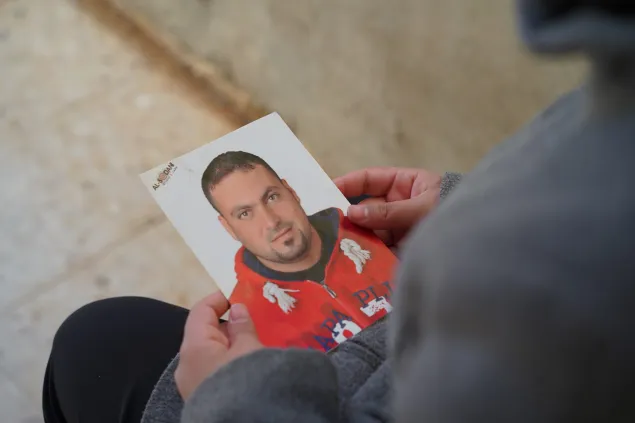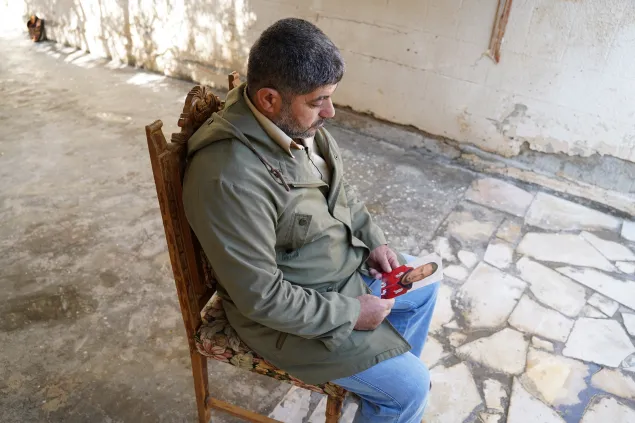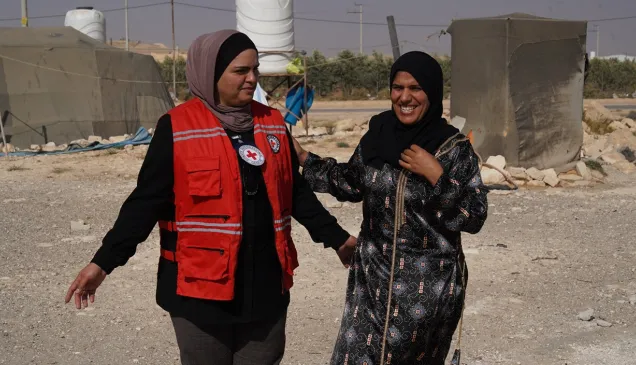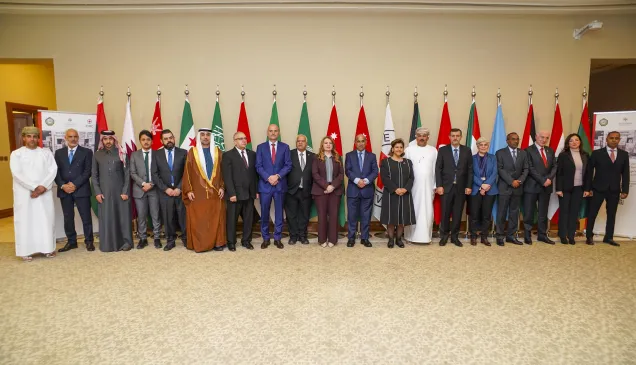A Journey of No Return: ICRC helps clarify the fate of a missing Migrant

Imagine being forced to leave your country, your family, your wife, your children, your childhood memories and everything and everyone that you know and head towards the unknown, taking a risky leap that may cost you your life… just to fulfil very simple dreams that any person should enjoy in everyday life. But for Mohammad, the Syrian refugee in Jordan, the story was different.
The 30-year-old Mohammad was living in Jordan after fleeing Syria in 2013. Married and the father of a 10-year-old daughter, Mohammad spent years trying to obtain a good standard of living for his family. His greatest dream was to ensure that his daughter could continue her education and build a better future for herself and their family. Therefore, in 2023, Mohammad made the heart-wrenching decision to take a risky journey, leaving his wife and daughter behind. He embarked on that journey hoping it would open opportunities for him abroad that would allow him to fulfil his dreams for a brighter future.

It probably was the hardest and scariest choice for Mohammad who had to leave his loved ones behind, fully aware of the dangers and uncertainties on the migration route, compounded by severe financial constraints.
The death journey was fraught with risks —fear, loneliness, uncertainty and the anguish of being separated from his family. Yet, despite these hardships, Mohammad pressed on, holding steadfast to the belief that the sacrifices he was making would one day pay off for the people he loved the most.

One additional reason for his risky trip was a quest to seek medical treatment, for every time his wife was pregnant, she would have a miscarriage. He desperately wanted to cure his beloved wife and to have many children. He also hoped to find relatively better income for him to be able to cover the growing needs of his family. These goals made him indifferent to the risks of the journey, focusing only on his objectives.
Europe was his destination. On 15 March 2023, he left Jordan heading to Egypt, then travelled to Libya his last stop before going to Europe.
During his time in Libya, he moved from one place to another, until he settled with a group of people for about three months, maintaining regular contact with his family during this time until the moment came for him to board the boat. His family was terrified, especially after learning that the boat was overcrowded, far exceeding the agreed-upon number of passengers. Aware of that fact, Mohammad and seven of his friends initially refused to board the vessel but unfortunately, they were forced to board that boat. It was later understood that at some point, he regretted his decision and wished to return from the perilous journey, but it was far too late.
The migrants spent four to five days at sea with no means of communication. Meanwhile, the family tried to contact the organizers of the migration journey, but they received vague or delayed responses. Until one day, the devastating news broke on social media: a boat matching the description of Mohammad's had capsized. It was reported to have carried around 900 illegal migrants, with approximately 750 of them lost to the raging sea.
Mohammad's brother was distraught by the news and started reaching out to his connections in Europe, desperately seeking any piece of information about the boat and Mohammad's fate. He eventually learned that there had been two boats: one reached its destination safely, while the other sank near the Greek coast. Determined to uncover the truth, the family continued their search for Mohammad.
Finally, they managed to contact the sole survivor from Mohammad’s group. He recounted the horrific journey, emphasizing how unsafe it had been. According to him, the boat had been severely overcrowded, with no safety measures in place. Shockingly, the migrants were not even allowed to wear life jackets. But still Mohamad’s fate was still unknown.
In July 2023, Mohammad’s family approached the International Committee of the Red Cross (ICRC) in Amman, desperate for answers. They requested the ICRC’s support to determine the fate of their loved one.
The ICRC team promptly opened a tracing request, working in close coordination with the relevant authorities. As part of the identification process, DNA samples were collected through a collaborative effort involving the ICRC Jordan, Jordanian Authorities, and counterparts in Athens. The sad news was confirmed. The DNA sample matched with one of the bodies they had repatriated from the sea.
Mohammad was no longer alive.
He drowned like thousands of other migrants who paid the heaviest price of armed conflicts and forced migration. Those innocent civilians who had to pay with their lives just to secure a decent living and a happy future for their families.





